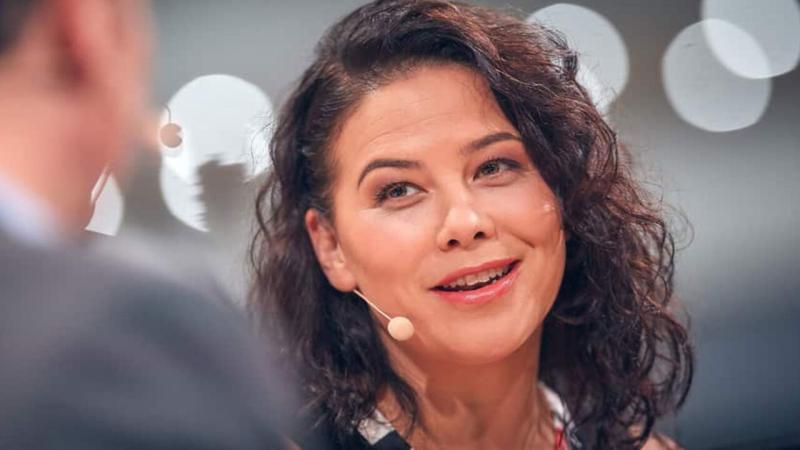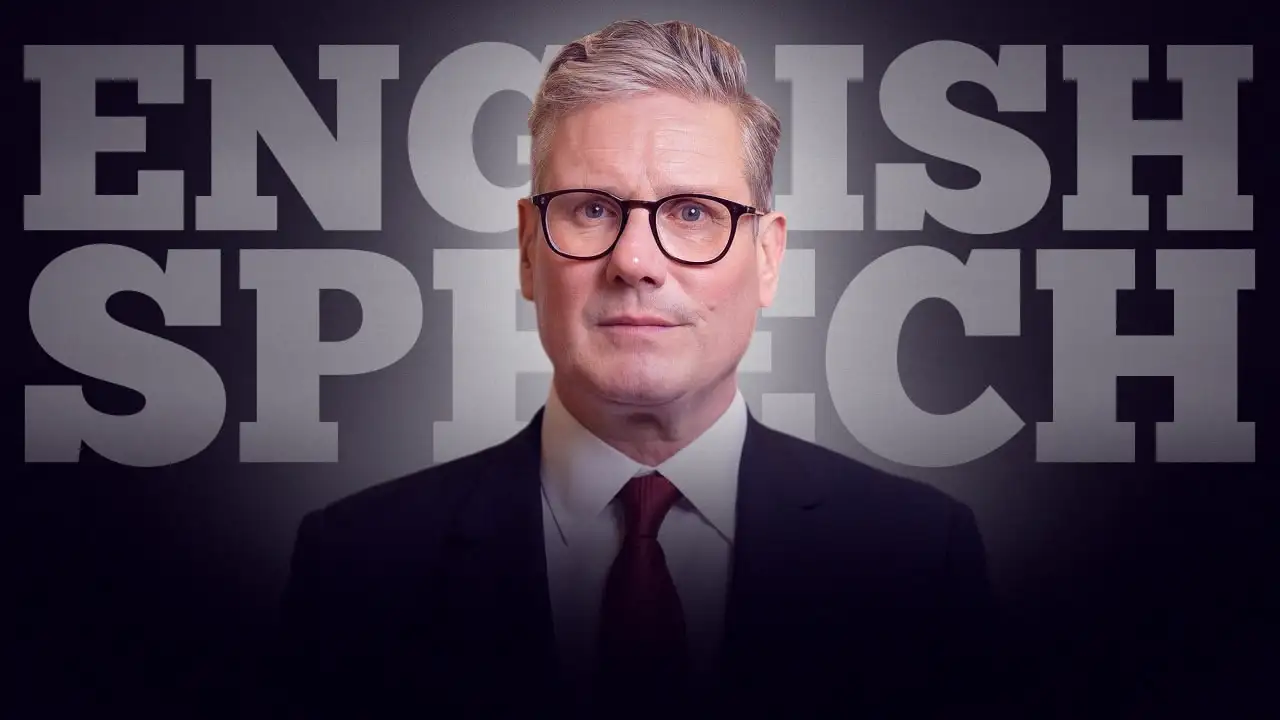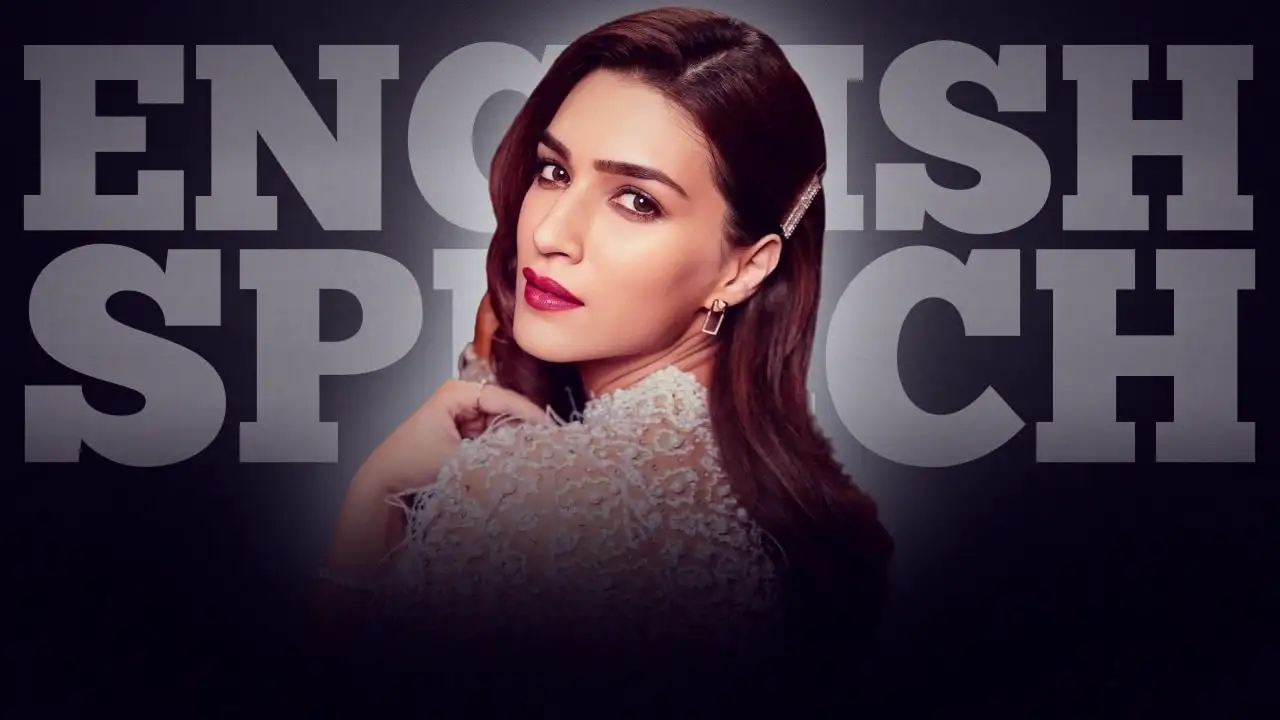Severn Suzuki Speech: I’m fighting for my future
Learn English with this famous Severn Suzuki Speech. Severn Suzuki, a 12-year-old girl who silenced the world in 1992 at UN Conference at the Rio earth summit. Also, in 2012, after 20 years, she comes back to Rio de Janeiro to tell what she Wants for The Future of the Planet. Enjoy our Speeches with big English subtitles and keep your English learning journey.
English Speeches also makes this content available for download
Download this Speech in PDF
Download available
for Plus Members
🎯 1000+ English files (PDF, MP3, Lessons)
PDF Transcript
Access the full speech in an
easy-to-read PDF format.
Audio Version
Listen and download clear,
high-quality MP3 recordings.
English Lesson
Includes vocabulary
and grammar practice.
Offer ends in:
01
Days
:
15
Hours
:
29
Mins
:
42
Secs
Offer ended.
Download available
for Plus Members
PDF Transcript
Access the full speech in an
easy-to-read PDF format.
Audio Version
Listen and download clear,
high-quality MP3 recordings.
English Lesson
Includes vocabulary
and grammar practice.
Offer ends in:
Offer ended.
transcript and/or MP3 audio file:
Severn Suzuki full TRANSCRIPT:
1992
Hello, I’m Severn Suzuki speaking for “ECO” — the Environmental Children’s Organization. We are a group of 12 and 13-year-olds trying to make a difference: Vanessa Suttie, Morgan Geisler, Michelle Quigg, and me. We’ve raised all the money to come here ourselves — to come 5,000 miles to tell you adults you must change your ways. Coming up here today, I have no hidden agenda.
I am fighting for my future. Losing my future is not like losing an election, or a few points on the stock market. I am here to speak for all generations to come. I am here to speak — speak on behalf of the starving children around the world whose cries go unheard. I am here to speak for the countless animals dying across this planet, because they have nowhere left to go.
I am afraid to go out in the sun now, because of the holes in our ozone. I am afraid to breathe the air, because I don’t know what chemicals are in it. I used to go in — I used to go fishing in Vancouver, my home, with my Dad until, just a few years ago, we found the fish full of cancers. And now we hear of animals and plants going extinct every day, vanishing forever. In my life, I have dreamt of seeing the great herds of wild animals, jungles, and rainforests full of birds and butterflies, but now I wonder if they will even exist for my children to see.
Did you have to worry of these things when you were my age? All this is happening before our eyes and yet we act as if we have all the time we want and all the solutions. I’m only a child and I don’t have all the solutions. I don’t — I want you to realize, neither do you. You don’t know how to fix the holes in our ozone layer.
You don’t know how to bring the salmon back up in a dead stream. You don’t know how to bring back an animal now extinct. And you can’t bring back the forests that once grew where there is now a desert. If you don’t know how to fix it, please stop breaking it. Here, you may be delegates of your governments, business people, organizers, reporters, or politicians.
But, really, you are mothers and fathers, sisters and brothers, aunts and uncles — and all of you are someone’s child. I’m only a child, yet I know we are all part of a family — five billion strong; in fact, 30 million species strong — and borders and governments will never change that. I’m only a child, yet I know we are all in this together and should act as one single world towards one single goal. In — In my anger, I’m not blind; and in my fear, I’m not afraid of telling the world how I feel. In my country we make so much waste, we buy and throw away, buy and throw away, buy and throw away and yet Northern countries will not share with the needy.
Even when we have more than enough we are afraid to share; we are afraid to let go of some of our wealth. In Canada, we live the privileged life. We’ve plenty of food, water, and shelter. We have watches, bicycles, computers, and television sets. The list could go on for two days.
Two days ago, here in Brazil, we were shocked when we spent time with some children living on the streets. This is what one child told us: “I wish I was rich and if I were, I would give all the street children food, clothes, medicines, shelter, and love and affection. ” If a child on the streets who has nothing is willing to share, why are we who have everything still so greedy? I can’t stop thinking that these are children my own age, that it makes a tremendous difference where you are born; that I could be one of those children living in the favelas of Rio.
I could be a child starving in Somalia, or a victim of war in the Middle East, or a beggar in India. I am only a child, yet I know if all the money spent on war was spent on finding environmental answers ending poverty and in finding treaties, what a wonderful place this Earth would be. At school, even in kindergarten, you teach us how to behave in the world. You teach us to not to fight with others, to work things out, to respect others, to clean up our mess, not to hurt other creatures, to share, not be greedy. Then, why do you go out and do — do the things you tell us not to do?
Do not forget why you are attending these conferences — who you’re doing this for. We are your own children. You are deciding what kind of a world we are growing up in. Parents should be able to comfort their children by saying, “Everything’s going to be all right; it’s not the end of the world, and we’re — and we’re doing the best we can. ” But I don’t think you can say that to us anymore.
Are we even on your list of priorities? My dad always says, “You are what you do, not what you say. ” Well, what you do makes me cry at night. You grown-ups say you love us. But I challenge you, please, make your actions reflect your words.
Thank you.
2012
I am here in real, after 20 years, and it is quite an experience coming back here when the world has once again descended on this beautiful city to come together and discuss how we are going to turn the tide towards a way of life that will actually carry us through. Everyone wants to know what has happened in the last 20 years, how far we’ve come, have we made progress? I’m sure some of you saw the paper that came out in the academic journal Nature last week.
Scientists from around the world came together to produce a report saying that we are potentially forcing a state shift in our planet’s biosphere. We are putting such pressure on the Earth’s atmosphere, the Earth’s oceans, the soils, the biological systems that keep us alive every day, such pressure that we may be forcing the natural balance to a tipping point, like the one that our planet saw 12,000 years ago with the end of the last ice age. But this time, the transition will be human-caused. We have become a geological force! And it will be orders of magnitude faster than the thousand-year transition that happened last time.
This transition, the scientists say, and the new stable ecostate will not be comfortable for humans. Twenty years after Rio, we have not even come close to achieving the sustainable transition that we knew we needed back then. This is the honest truth. We all know this sitting here. Let us be honest.
Twenty years ago, I believed if I just got through to the world leaders, if I spoke the truth… They had power. They had power to lead our society forward to a better way of living. I began to get invited to more events after Rio 1992, I was invited back to the UN, Rio+5, Rio+10, PrepComs, the Kyoto protocol, and I gradually realized that there was more to the story. I gradually realized that citizens needed to engage.
That the grassroots was where we could really see the solutions, where we could actually find answers, relocalizing, looking to our own communities. We had to get in there, couldn’t wait for leaders to do it for us. And now, twenty years have gone by. I’ve dedicated my life to this cause like many of you. I see many familiar faces I’m glad to see after so long.
Twenty years after Rio, the citizen engagement hasn’t been enough to filter through, to shift the tide. The world’s ecosystems continue to decline in a tailspin terrifying to any biologist. The growth of the economy, the success of our current economy remains the foremost for politicians and the institutions clinging to power. And the collusion between our governments and corporations that we have seen rise in the last twenty years is enough to make anyone of my generation totally cynical.
Concerned citizens and activists and youths engage, we speak up on local issues, on global issues, we organize, we volunteer, we put our money, we put our energy in good faith that our voices do matter. This is what I believed for the last twenty years in my life. My voice matters, but it is clear that the current global meta-strategy is to turn everything from nature into profit at a rate and at a scale that dwarfs its opposition. Twenty years on since Rio, we need nothing short of a massive paradigm shift if we are to make it, if the human race is to carry forward into the future with dignity.
Today it’s 2012. I’m a better environmentalist at age 32, I’ve committed my last 20 years to trying to influence societal transformation to a way of life that will actually support intergenerational justice. And intergenerational justice is what we are really talking about when we talk about sustainable development. Stopping the intergenerational crimes that we are perpetrating towards current and future human beings who will have to deal with climate change and deal with these legacies. I’ve done a lot of things in twenty years, I’ve grown up a lot, but those six minutes speaking to the UN, twenty years ago, two decades ago, remains the most powerful I have ever done, the strongest thing I have ever done in my life to affect people.
Since then, I have received letters from people around the world who can’t even express how moved they were. Years later, the Internet was invented, YouTube, and the video somehow found its way onto YouTube and it’s gone around the world and has experienced a rebirth. Why? I think that this phenomenon shows that the world is hungry for this message.
That we are desperate to hear someone speak the truth, speak this message. We need someone to cut through all the rationalizations we have built up for the destruction of our planet. And no one can do this better than those with everything at stake, which is our youth. Were any of you moved by that video you saw? Can you raise your hands, please, if you were moved?
That video gave me goosebumps. That video is the voice of youth. That video, and this young woman sitting here, they are telling the truth and everybody in this room, and everybody tomorrow listening to her will know it. The second reason that people are still talking about the speech a twelve-year-old made to delegates 20 years ago it because of the most powerful tool belonging to the human race. This most powerful that we have is the power of intergenerational love.
As we look back on our progress since the Earth Summit in 1992, it would be easy, it would be too easy to be discouraged. But a generation has nearly passed, and today I am a mother of little boys, age 2 and 4 months, and I will do everything in my power to ensure that they have the opportunities and the just life that I had when I was growing up. And I believe that everyone here in this room, I believe that the 50,000 people that are here in Rio for the Earth Summit in 2012, I believe all of us will do everything we can to ensure that our children have every opportunity in their lives. This I choose to believe, and because I choose to believe this, I am optimistic to the future. We are at a turning point.
We are gathered here today. We’ve done this amazing project, we’re listening to our young people. And I believe we’re going to change for the better. Thank you very much.
Severn Suzuki







